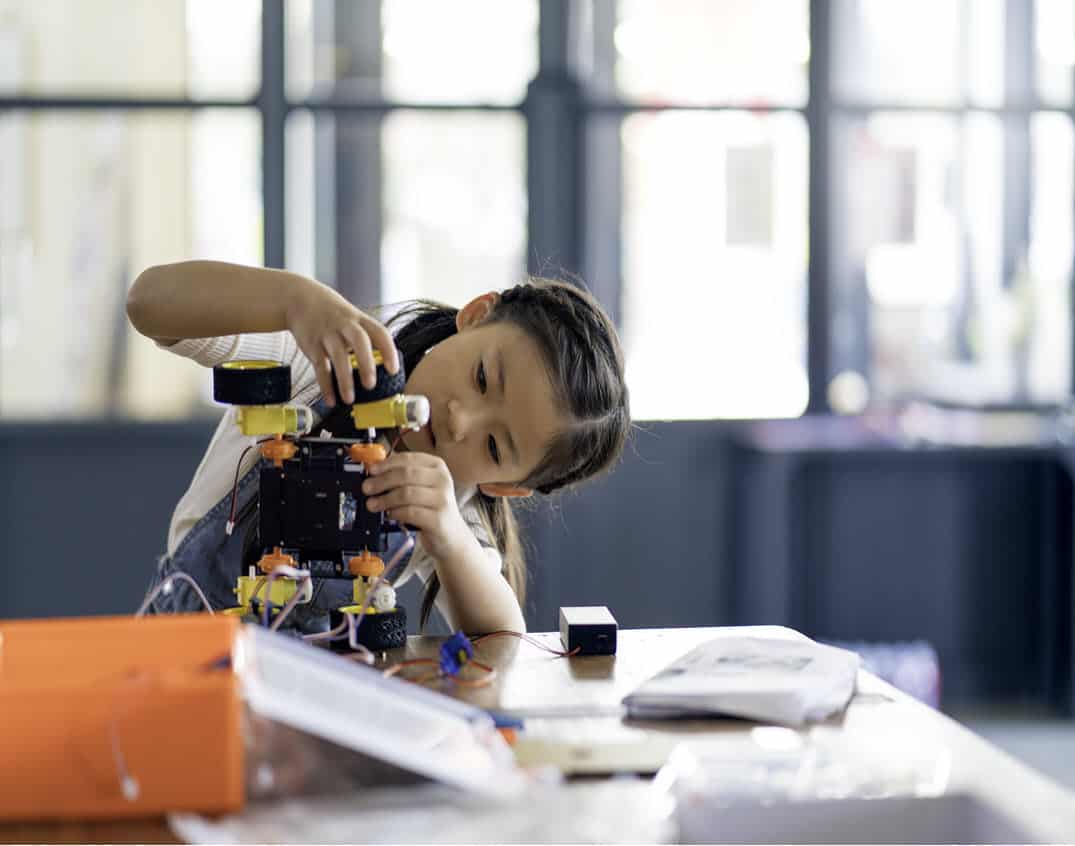How do you know what your child is feeling at school?
A familiar scenario: your child comes home from school, and you, the interested parent, eagerly ask them how their day was and what they did. While some children will happily relay the day’s events, most shrug and say, “Good” without offering any detail. Don’t worry – this is totally normal. After all, it’s not even really a question about how their day was. It’s an attempt to start a conversation about how they are feeling. Their fatigue and probably hunger at that time of day will take over. They haven’t worked out the real question requires empathy to see that mum or dad really has something else in mind. Give it a few hours and ask at dinner time in a different way or when they are relaxed alternatively, just observe instead.
Did you know that you can learn a lot about your child’s day without them saying a word?
Is your child’s experience at school one that nurtures engagement, or one that leads to their boredom?
There are plenty of ways to tell how your child is feeling. School should be a place that sparks wonder and curiosity; it should not feel like a necessity that must be endured. Read on for clues as to how your child’s learning experience feels to them.
What an engaged child looks like:
- They may blurt out seemingly random (but interesting) bits of their learning. “Did you know that if our intestines weren’t all squiggled up, they would be the size of a baby blue whale?!” These moments let us know that children are thinking about what they’ve learned long after they first hear the information, and that it’s fascinating to them.
- They will make connections to their learning in everyday life. As you prepare lunch one Saturday, they may tell you all about the food preparation activities they have learned over the past month or so. Or they may surprise you with extensive background knowledge as you watch a nature show together. Making connections is a clear sign of real understanding.
- They complain when they have to stay home sick from school. Of course, no one likes to be sick, but for children who really love going to school it’s doubly awful. Not only do they feel bad physically, but they have to miss out on all that fun for a day.
- They surprise you at drop-off. Maybe they hastily jump out of the car, ready to run for the school’s door. Or maybe they even forget to say goodbye once in a while. Don’t take it personally – this just means they feel really excited about where they get to spend their days.
- They take off on a topic or project they are suddenly interested in that was sparked at school or after spending time with a friend.
- They have meaningful friendships. This means different things at different ages, but if they have mostly positive interactions with their peers, it’s likely they are happy in the environment. Good schools encourage supportive relationships and acknowledge that our connections with others is part of who we are as whole people.
- They display signs of independence and confidence. A positive school environment lets children feel empowered not just in their learning, but in who they are as people. If your child wants to do things for themselves and take positive risks, they have probably been encouraged to do so at school.

What a bored child looks like:
- They are reluctant to go to school. We all have days like this, but if you notice your child seems like they’d rather stay home every day, it’s worth noting.
- They are displaying problematic behaviors. There can be many reasons for a child acting out, but one of them is a feeling of disconnect with school. Boredom is one reason children make poor choices.
- They complain that the work at school is too hard or too easy. These statements may be true (or not), but they are indicative of a need for more challenge or support.
- The difficult-to-describe spark has faded. Children are naturally excited about life, so when you see the moments of curiosity and wonder becoming less and less present in your child’s days, it might be time to figure out what’s going on.
- They tell you they feel bored at school. It can be easy to shrug these types of comments off, especially if you had negative school experiences and you accepted this as normal. If your child is able to articulate that they are not feeling positively about their school experience, it’s important that we listen to them.
What can you do?
Keep in mind that the signs we described can be viewed as guidelines; every child is different and there are many reasons a child may feel negatively about their school experience. If you notice a pattern of avoidant, problematic, or apathetic behavior, it’s worth paying attention and taking a closer look. Some suggestions:
- Schedule a meeting with your child’s teacher. Don’t present your concerns as accusatory, rather state any factual observations and ask for their take on the situation. If they seem concerned and eager to work together to solve the problem, that’s a great sign (especially if they follow through).
- Learn about the educational philosophy of your child’s school. Is learning individualised or standards-based? Are lessons exploratory or directive? Are there indications that the school places value on more than just academics? Is it obvious that independence (including independent thinking) is valued? How are peer social conflicts handled?
- Find out if your child’s school provides adequate opportunities for movement. The body influences the brain and the brain controls the body. Many teachers in conventional schools feel extreme pressure in regard to scheduling and content they must cover on a daily basis, making recess (and even breaks and in-class movement) less of a priority. Kids need to move throughout the day, and they need unstructured playtime to be able to focus when it is time for learning.
- Involve your child in the conversation, to the extent that is appropriate for their age. Ask them how they feel and let them know they can be honest with you. Ask them what they wish was different about their experience.
We hope this post has been informative. One of the many marvellous aspects about Montessori education is watching children who are switched on to a love of learning, who are curious, hungry for more and driving initiatives. If you want to see what engaged, independent, scholarly learning looks like then come for a visit. Schedule a tour today. We would love to show you our classrooms in action.



